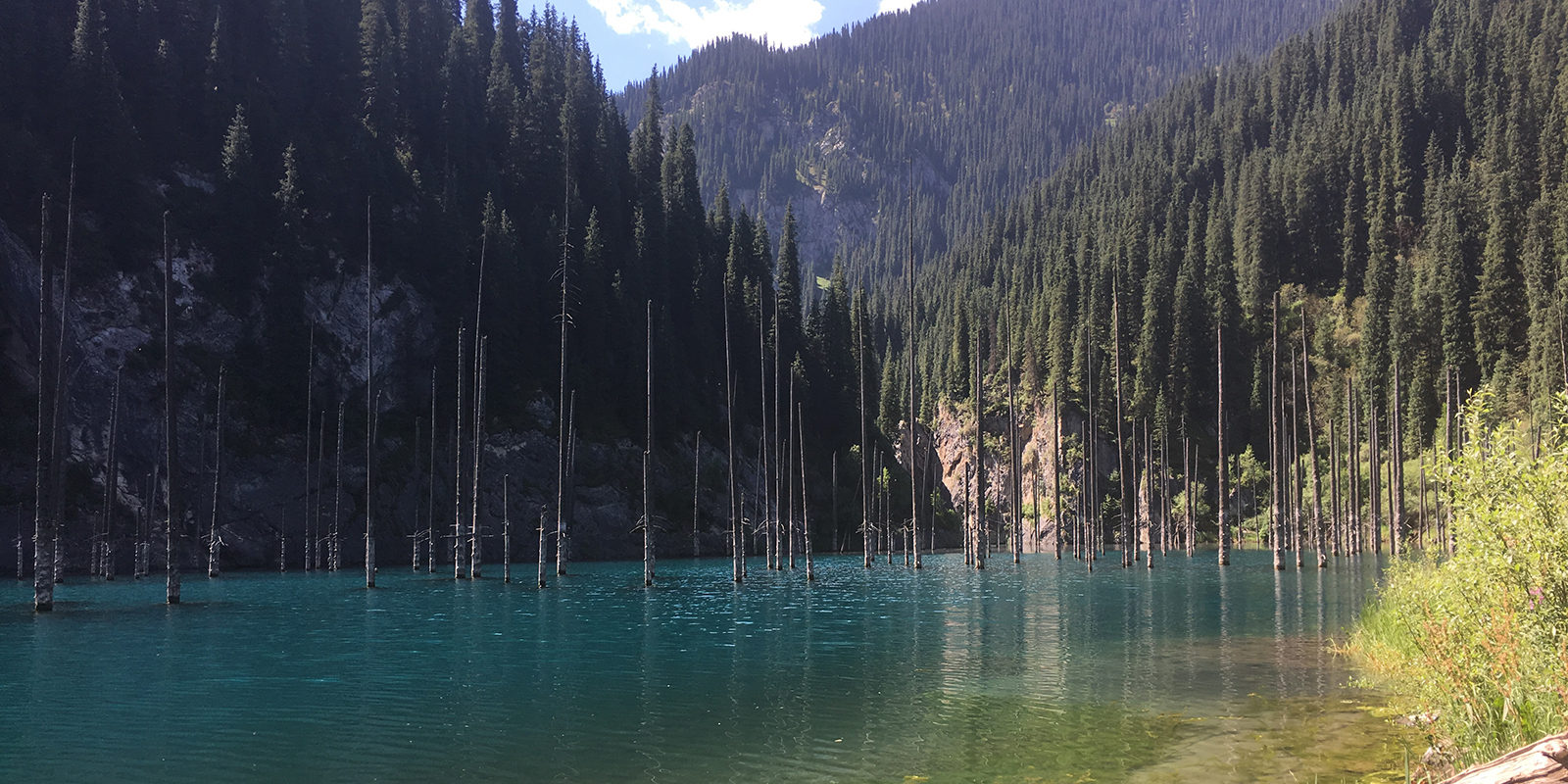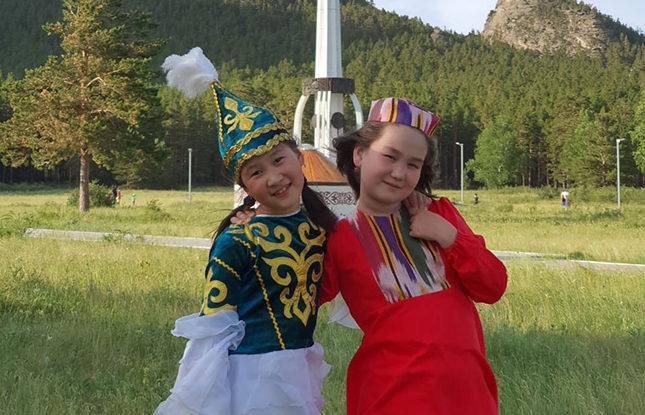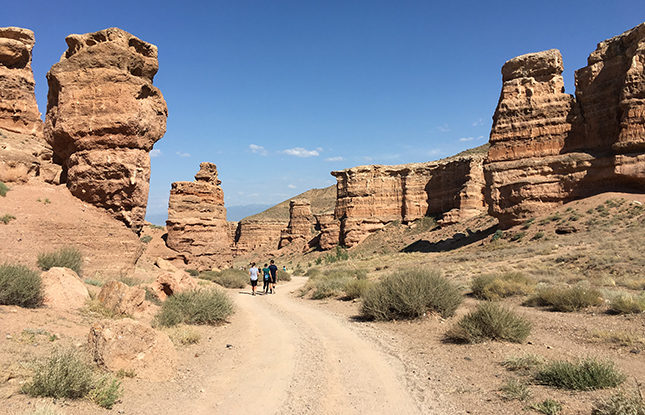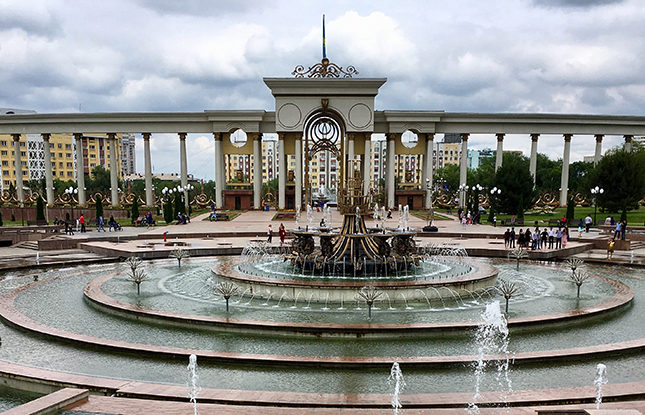While there are millions of fans of comedian Sacha Baron Cohen’s ‘Borat’ mockumentaries, Gulnara Glowacki is decidedly not among them.
Glowacki, a UW-Madison senior lecturer in Kazakh Language and Culture who was born and raised in the Central Asian country of Kazakhstan, isn’t amused by Cohen’s portrayal of a fictitious Kazakhstani journalist bumbling his way through awkward encounters with puzzled American citizens. And she’s also not thrilled that the recent sequel, “Borat Subsequent Moviefilm: Delivery of Prodigious Bribe to American Regime for Make Benefit Once Glorious Nation of Kazakhstan,” has brought the character back to the forefront of U.S. popular culture.
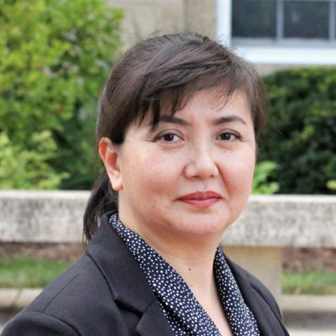
“Not many people know about Kazakhstan, and they believe from this film what they see,” says Glowacki, who finds the films’ portrayal of Kazakhs as coarse and sexually immoral people highly offensive. “Those who watch can’t respect our people and culture because their imagination has been poisoned by these films. People know almost nothing about the traditions, food, culture and history—especially the oppression and genocide by starvation under the Soviet regimes. Almost no one knows about what we suffered to become an independent nation.”
Glowacki is in a position to combat the stereotypes and promote understanding. For the past four years, she has taught both undergraduate and graduate classes in the Kazakh language through UW’s Center for Russia, East Europe, and Central Asia (CREECA) program, with culture, history, and some traditions included for students studying Central Asian languages, politics, history, textiles and arts. Many of her students have already studied Russian, a language also spoken in Kazakhstan. Students are typically interested in linguistics, political science, or in the language and culture of the region.
Bordered by Russia, China and the Caspian Sea, Kazakhstan is the ninth-largest country in the world, with a multi-ethnic population of more than 18 million people. It declared its independence from the Soviet Union in 1991. It enjoys a booming economy, thanks to its natural gas, oil and mineral resources.
Tom DuBois, chair of UW-Madison’s German, Nordic and Slavic+ department, explains that UW has a decades-long commitment to teaching Turkic languages, including Kazakh. In addition to international students from Kazakhstan completing courses here, UW-Madison also has a strong partnership with Nazarbayev University in Nur-Sultan, Kazakhstan’s capital city, and students in the UW’s Russian Flagship Program study abroad in Almaty, Kazakhstan’s largest city.
“Universities like ours have a role of providing good information about these cultures,” he says. “The movies may promote humor that’s ill-conceived, but the best way to respond to that is to say, ‘I want to find out more about that culture.’ If we can help with that, then we’re doing our part to offset the simplistic worldview.”
DuBois knows firsthand how critical that role can be – he worked as a consultant with Disney on the movie Frozen 2, helping to ensure accurate representation of Indigenous Nordic cultures.
He notes that UW-Madison remains of one of the top American universities to send students to the Peace Corps, where they can receive real-world experience in countries like Kazakhstan.
“That shows we’re doing something right,” he says.
DuBois mentions Dennis Keen, whose story was profiled in a recent New York Times article. Keen spent time in Kazakhstan as a teenager, spent the summer of 2012 in Madison with the UW’s Central Eurasian Studies Summer Institute (CESSI) and now works and lives in Kazakhstan with his family. When the second “Borat” movie debuted in September, Keen brought an intriguing idea to the country’s tourism office: capitalize on the movie’s notorious “Very Nice!” catchphrase to create a series of videos encouraging tourists to visit and learn about the real Kazakhstan. The “Kazakhstan—Very Nice!” campaign is now running globally.
“Keen could never have done that unless he had learned the language, studied Kazakh culture in a substantive manner, and then really engaged with the culture and nation in his professional life,” says DuBois. “And he could never have done that unless he had access to good quality educational resources, like he received through his study abroad experience, or through courses like we offer here at UW.”
From Glowacki’s perspective, studying Kazakh is an extremely worthwhile investment. She’s known graduates who have landed lucrative jobs in fields like geology, energy, history and international business because of their knowledge of the country, its language and its people. She notes that UW has both funding and fellowships for students interested in Kazakhstan.
“Actual experience in and knowledge of Kazakhstan can open doors that you didn’t know existed before,” she says. “Many less well known but exciting career paths have been paved by former students of mine.”
Like many of her Kazakh contemporaries, Glowacki plans to ignore the “Borat” movies going forward, but she remains optimistic about the opportunities for enlightenment that might come out of them.
“Immersion in a foreign culture and trying to relate and make friends in that new culture will expand your perspective and show you how the world is much bigger than your own assumptions and belief systems,” she says. “There will be valuable insights for those with eyes to see.”
